28, August 2024
Buea: Deadly attack on police officers an “act that violates human life”: Bishop Bibi 0
The Catholic Bishop of Buea Diocese in Cameroon has “strongly” condemned the killing of police officers in the country’s Southwest region following an attack on their security post located in his Episcopal See.
In a statement shared with ACI Africa on Monday, August 26, Bishop Michael Miabesue Bibi weighs in on the August 24 attack that reportedly resulted in the death of three police officers and injury of others; he appeals for peace in the troubled regions of the Central African nation.
“On Saturday, August 24, 2024, three policemen were killed by unidentified gunmen at Bwitingi, a locality in Buea Subdivision, Fako Division of the Southwest Region of Cameroon, Diocese of Buea,” Bishop Bibi says.
He adds, “From my visit to the site of the incident, three police officers on duty were killed in an attack which occurred around 10:30 P.M. The makeshift police post where the attack happened was established as a measure to protect civilians in the context of the ongoing armed conflict in the North-West and South West regions of Cameroon.”
“I strongly condemn any act that violates human life and pray for the conversion of the perpetrators of violence in our midst and for a return to peace and stability,” the Cameroonian Catholic Bishop says.
He continues, “The Church remains close to the families, friends, and relatives of the deceased. We equally pray for the eternal repose of the souls of the victims of this attack.”
“Every time we hear of killings in the context of the ongoing crisis, we are reminded that if we do not abandon the path of violence and seek the path of peace, violence will definitely continue to inflict pain, hurt, and trauma on us all,” he said.
The Catholic Church leader, who has been at the helm of Buea Diocese since December 2019, first as Apostolic Administrator, and since February 2021, as the Local Ordinary adds, “As Christians and people of goodwill, we must always remember the commandment of God: Thou shall not kill.”
Cameroon’s English-speaking regions plunged into conflict in 2016 after a protest by lawyers and teachers turned violent.
An armed movement of separatists claiming independence for the so-called republic of Ambazonia emerged following the government’s crackdown on protesters.
School boycotts have become common in these areas, as have enforced moratoriums on public life, resulting in what is known as “ghost towns”.
In his August 25 statement, Bishop Bibi reflects on the ongoing crisis, emphasizing the value of giving peace a chance.
“The integral development of our country requires peace. This peace that we seek as Christians is true peace. Peace which is not limited to maintaining a balance of powers between adversaries,” he says.
The Catholic Church leader who started his Episcopal Ministry as Auxiliary Bishop of Cameroon’s Bamenda Archdiocese in March 2017 explains that “peace cannot be attained on earth without safeguarding the goods of persons, free communication among men, respect for the dignity of persons and peoples, and the assiduous practice of fraternity. Peace is the tranquillity of order. Peace is the work of justice and the effect of charity.”
He appeals to the people of God under his pastoral care “to pray for a speedy return to peace in the North West and South West Regions of Cameroon, the peaceful repose of the souls of the departed victims of Saturday’s incident, and for stakeholders of the crisis to seek peaceful means to sustainable peace.”
Source: aciafrica
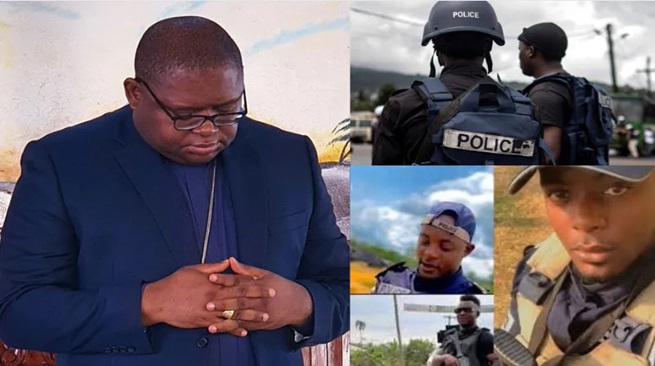



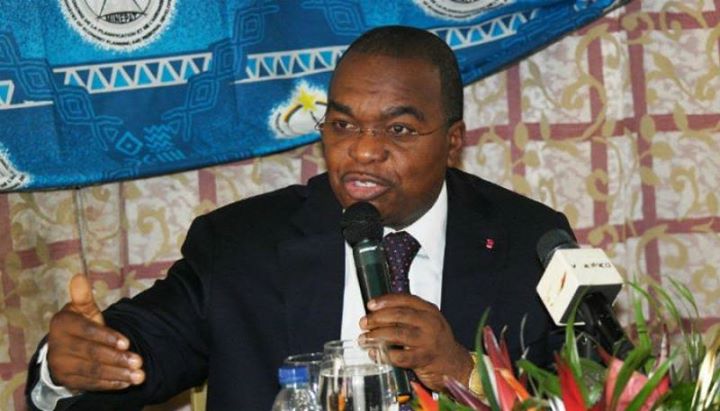
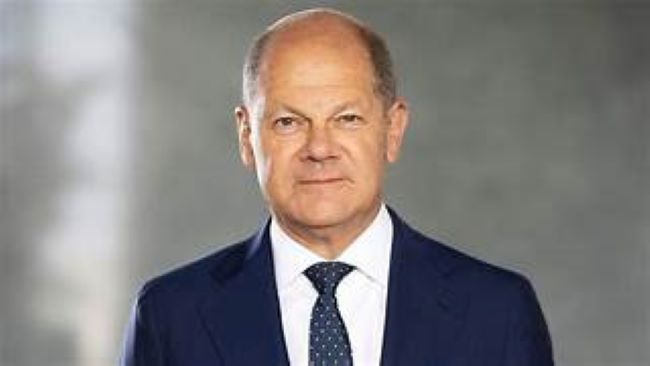
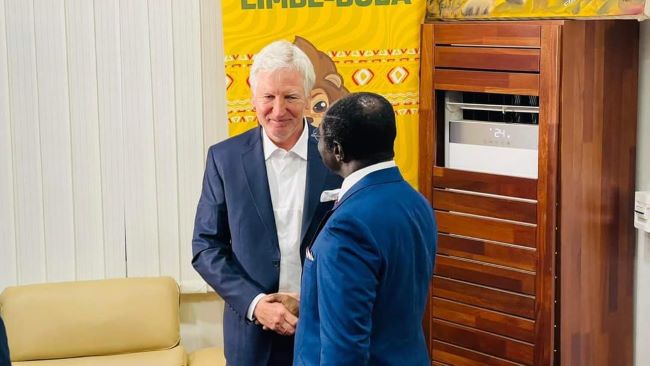















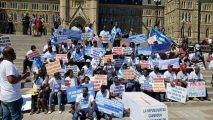
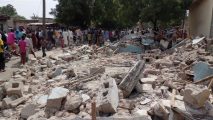



28, August 2024
Archbishop Nkea on How Synod on Synodality Evolved from Pastoral to “more academic, intellectual topic” 0
The Synod on Synodality, which started off as a pastoral issue, bringing on board every baptized member of the Church, has now become a “theoretical” topic for intellectuals, the Archbishop of Cameroon’s Catholic Archdiocese of Bamenda has observed.
In his presentation at the August 23 session of the ongoing weekly synodal palavers, Archbishop Andrew Nkea Fuanya explored the various ways in which the ongoing multi-year Synod on Synodality, which Pope Francis extended to 2024, with the first phase, 4-29 October 2023, having concluded with a 42-page summary report, has evolved.
“Synodality has undergone an evolution from the time it was conceived through the time it was put out as a subject for the next synod up to where we are now,” Archbishop Nkea said at the event that the Pan-African Catholic Theology and Pastoral Network (PACTPAN) organized in collaboration with the Conference of Major Superiors of Africa and Madagascar (COMSAM).
He noted, “Synodality, which stood out as a pastoral topic, is becoming a more academic and intellectual topic.”
According to the Cameroonian Catholic Archbishop, synodality started as a means of gathering the people of God and getting everyone to participate in the life of the Church both in governance and in the preaching of the Gospel.
He said that along the way, he had noticed people move from discussions of inclusion and participation of every Christian in the life of the Church to “very fundamental theological discussions.”
Synodal conversations at present, he said, are theological in nature and “rise far above just the Christians and the Baptized participating in the life of the Church.”
“We started with participation, communion and mission, and these were just simple tools to get every baptized individual involved in the life and the governance of the Church,” the Archbishop of Bamenda, who also serves as President of the National Episcopal Conference of Cameroon (NECC) said.
“We are beginning to push down the three words that define synodality for us: participation, mission and communion. And we are beginning to move to more theological conversations,” the vocal Catholic Archbishop said, and expressed concern that the Synodal conversations are evolving in a way that “is taking us away from the more practical realm to the theoretical realm.”
The August 23 African palaver, which brought together African theologians, Clergy, women and men Religious, and Laity was organized under the theme, “Theological criteria and synodal methodologies as a basis for shared discernment of controversial doctrinal, pastoral and ethical issues.”
Source: aciafrica